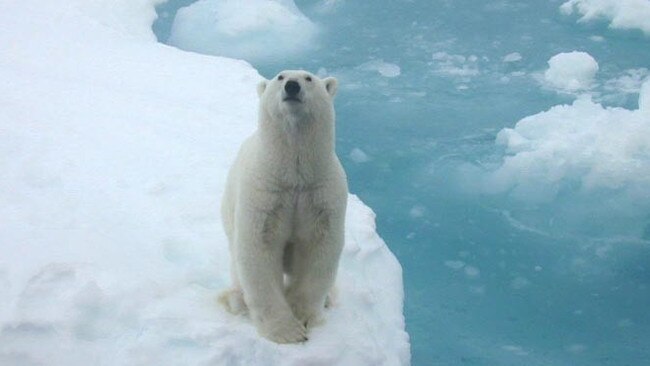Arctic summer ice set to vanish in 15 years
The Arctic could have no sea ice in summer by 2035, according to scientists who studied a warm period more than 100,000 years ago.

The Arctic could have no sea ice in summer by 2035, according to scientists who studied a warm period more than 100,000 years ago.
Satellite records show that the area of Arctic covered by sea ice in September, its lowest point in the year, is shrinking by about 13 per cent a decade. Half has been lost since the 1980s.
Scientists at the British Antarctic Survey, the Met Office and the University of Cambridge have used a computer model to study high temperatures in the Arctic during the last interglacial period, about 127,000 years ago.
The modelling shows that intense sunshine in spring resulted in an ice-free Arctic. It looked at the impact of shallow pools of water that form in spring and summer on the surface of Arctic sea ice. These “melt ponds” reflect less sunlight than ice and cause the ice and ocean to absorb more of the sun’s radiation.
The team concluded that the spring sunshine created many of these ponds during the interglacial period. Observations show that similar melt ponds are being created today.
Maria Vittoria Guarino, from the British Antarctic Survey and one of the study’s authors, said: “High temperatures in the Arctic have puzzled scientists for decades. Unravelling this mystery was technically and scientifically challenging.
“For the first time we can begin to see how the Arctic became sea ice-free during the last interglacial. The advances made in climate modelling means that we can create a more accurate simulation of the Earth’s past climate, which in turn gives us greater confidence in model predictions for the future.”
Louise Sime, another author, said: “By understanding what happened during Earth’s last warm period we are in a better position to understand what will happen in the future. The prospect of loss of sea ice by 2035 should really be focusing all our minds on achieving a low-carbon world as soon as feasible.”
The loss of sea ice threatens polar bears because they rely on it to find and catch seals and build up their fat stores.
A reduction in sea ice in summer would also allow more ships to the northern sea route along Russia’s Arctic coast between northwest Europe and the Far East, which is 40 per cent shorter than via the Suez Canal.
A study in April found that sea ice would disappear in some years before 2050 even if global emissions were cut rapidly.
The Times


